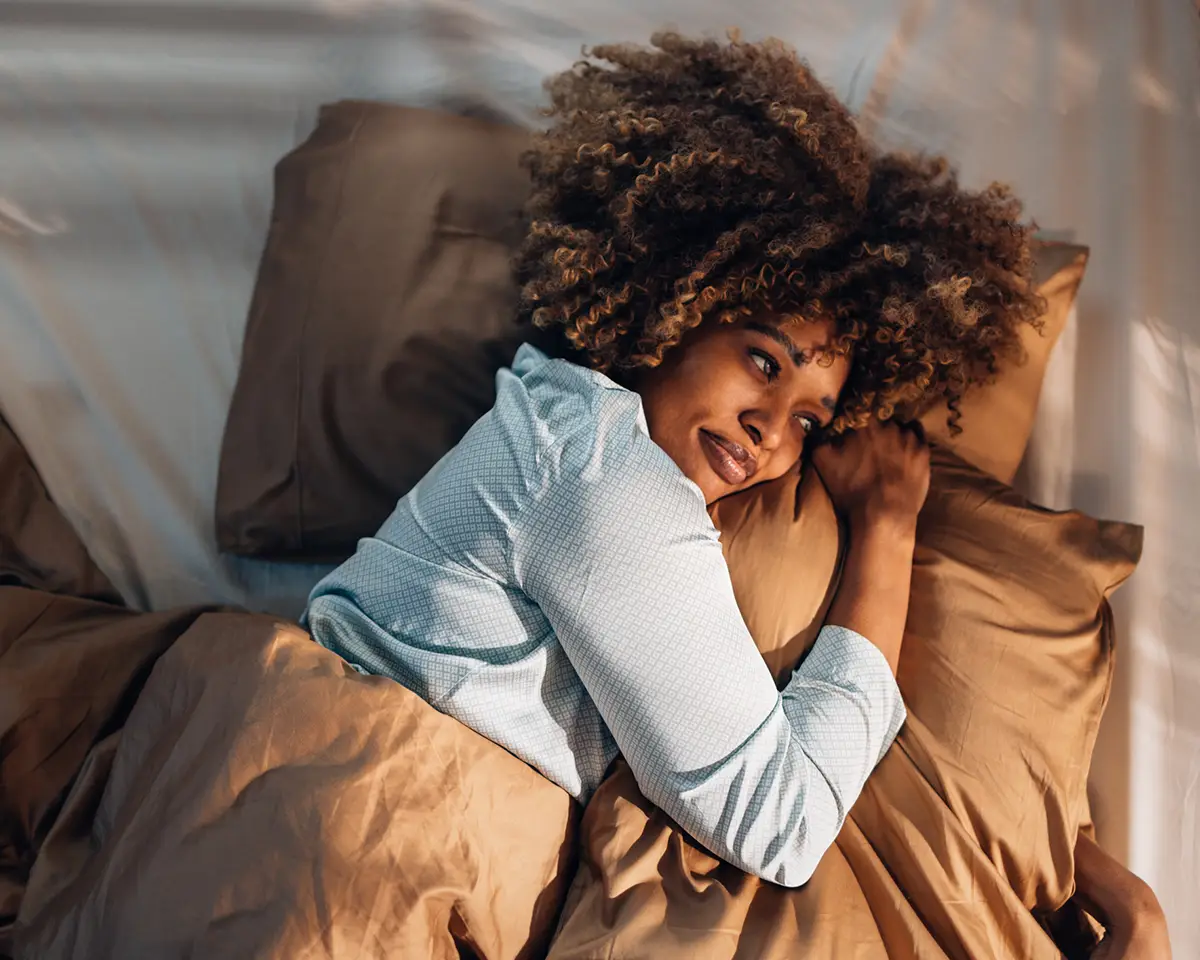What is a “hurkle-durkle,” and can this sleep trend negatively impact your health?

If you’re a social media user, you may have noticed a fun new micro-trend making its way across platforms including TikTok: the art of the “hurkle-durkle.”
Although it sounds like a noise a zoo animal might make, hurkle-durkle refers to a Scottish morning ritual of lounging in bed well after your alarm has gone off. As one content creator, Kira Kosarin, says in her viral TikTok video with 3.9 million views, “Once I’ve hurkled my last durkle in a given morning, I will get up.” Countless Instagram users have since posted pictures of themselves in bed along with #hurkledurkle.
We live in a fast-paced world that prizes productivity and optimization. So it makes sense that a trend that advocates for giving yourself more rest and downtime –– and savoring the art of doing nothing –– is making waves. However, spending more awake time in bed can negatively impact your sleep cycle, natural biological rhythm and the quality of your sleep.
Lounging in bed can make it more difficult to fall and stay asleep and may cause polyphasic sleep, a sleep-wake rhythm in which someone might, for example, sleep for four hours, be awake for two hours, and then sleep for another hour and be awake for four more. Polyphasic sleep disrupts the natural sleep-wake cycle for adults. The hyper-connectivity that comes from constant internet use like streaming platforms and social media can exacerbate this problem (and yes, that includes watching videos of people hurkle-durkling when you should be sleeping).
The data are resounding about the negative health impacts from lack of sleep and rest. They may include increased risk of dementia, memory loss, Alzheimer's as well as Parkinson's disease. These risks may increase by as much as 150 percent in short sleepers. There are some reports that stroke risk may increase by 200 percent in people who consistently do not get enough sleep.
Adequate sleep time for most people usually looks like seven to nine hours each night, but many people may only get four to six hours of sleep on weekdays –– and hurkle-durkling can’t fix a sleep debt.
So what can you do if you’re caught in a bad sleep routine?
Look at how much activity you’re getting during the day. Engaging in exercise and physical activity during the day is a helpful way to promote better quality of sleep. Physical activity also increases our body temperature, which allows us to maintain wakefulness, and lower body temperature helps you fall into a good restorative sleep.
Work on your sleep hygiene. The term refers to sleep habits that improve the quality of your sleep and help you maximize the benefits of sleep. For instance, drinking alcohol or caffeine before bedtime or eating a heavy meal right before bed can negatively impact your sleep quality.
Set up your bedroom for success. Similarly, like the state of your body when you go to bed, the environment has an impact, too. A comfortable, quiet, dark room, without noise from a TV or phone, can help you get the best possible rest.
Remember that physical activity and sleep hygiene are important for children, too. If yours are struggling, find some more tips on helping them sleep.
Still having trouble finding rest? Take a look at your sleep schedule and consider adjusting your bedtime. Keep in mind it’s difficult to move it by more than an hour or so, and if you’ve napped during the day, it usually makes it harder to fall asleep at night.
- Resource
- Resource